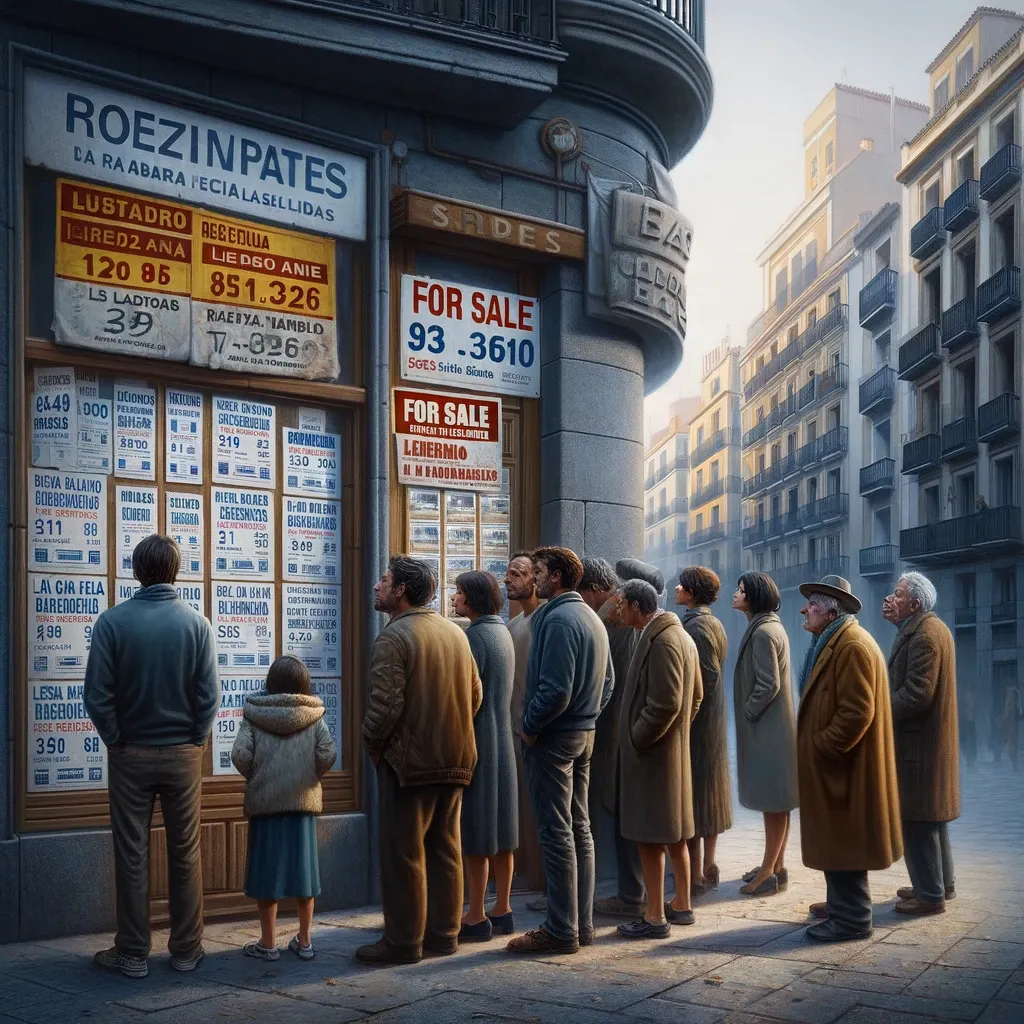Problems with Spanish housing legislation: difficulties with monitoring rental payments and other regulatory acts.

In Madrid, as in other cities around the world, access to housing is becoming increasingly difficult due to shortages and rising prices. In Spain, similar to many other countries where the impact of short-term rentals through platforms like Airbnb is being discussed, there is growing concern about traditional housing. This situation is reminiscent of what is happening in Argentina with the introduction of the Rental Law in 2020, which is currently under consideration in the Senate.
According to a private report
There is growing concern over the increasing difficulties faced by various population groups in Spain when searching for rental housing. According to the specialized portal Pisos.com, a recent Housing Law that came into effect this year has contributed to the rise in room rentals in shared apartments, which is described as an "unprecedented and dangerous" phenomenon.
This situation has led to an increase in the number of rooms for rent, with the average cost across the country reaching 405 euros per month in June, which is almost 6% higher than in the previous quarter. Barcelona is the leader with an average rent of 631 euros per month (+8.97% quarterly), followed by other cities such as Madrid (477 euros), Palma (473 euros), and Vitoria-Gasteiz (448 euros), according to data from Pisos.com.
The director of research at Pisos.com, Ferran Font, told Infobae that this trend is related to the current instability and legal uncertainty in the rental market. "New regulations and price restrictions are causing more and more owners to sell their homes instead of renting them out, which reduces supply and increases rental prices."
A similar phenomenon is observed in Argentina.
Especially in the city of Buenos Aires. Since the introduction of the Rental Law in 2020, hundreds of owners have chosen to sell their properties that were previously rented out. As a result, there are currently about 130,000 properties for sale in various areas of the metropolis.
One of the most controversial aspects of the Spanish Housing Law is rent control, which leads to serious debates in the industry, drawing on not-so-positive experiences from other countries where similar measures have been implemented.
13 May 2025
14 May 2025

“The Residential Property Lease Act (LAU) does not regulate the rental of rooms,” Font reminded, noting that “this means that owners can bypass the price restrictions of the new law by renting out rooms.”
This phenomenon poses significant challenges to the effectiveness of new regulations and highlights the need for "establishing clearer and more adapted rules for the current reality of the rental market," especially in light of the increase in renting rooms instead of entire living spaces.
In Spain, traditional rentals are becoming increasingly expensive.
for students or young people who are moving out of their parents' home and are looking for shared rental opportunities to reduce costs.
In this situation, the cost of traditional rent in Spain has increased by 2% over the last quarter, while inflation over the past 12 months has reached 2.6%. Meanwhile, in Argentina, rental prices in the city of Buenos Aires have risen by a record 114% in 2023, which corresponds to the inflation rate over the past year, according to data from the Zonaprop portal.
“We recommend that governments propose real solutions that take into account the interests of both owners and tenants in a constantly changing market that is inaccessible to part of the population,” said Font.
The control of rental prices has become one of the most controversial aspects of the new Spanish Housing Law, which is primarily based on long-term residential leases. "The supply is starting to decrease in Spain, and every month the number of owners who prefer to sell their properties instead of renting them out to avoid regulation is increasing," Font noted.
As for prices, apartments with an area of 100 square meters in Barcelona are rented for 2200 euros per month, in Madrid for 2000 euros, and in Vitoria for 1900 euros. It is worth noting that these prices are the initial ones offered by the owners and are usually subject to negotiation when signing contracts.
In Spain, the minimum lease term is one year. However, the tenant has the right to extend it up to 5 years, and the landlord cannot object. The only exception is that after the first year, the landlord can request the property for permanent family use, and he will not be able to rent it out again," explained real estate expert Mariano Marrero.
In Argentina, the Lease Law is still in effect. If a contract is signed today, its duration will be 3 years and it can be terminated by mutual agreement of the owner and the tenant after 6 months. Due to the current dispute, the number of extensions and informal agreements is increasing.
Marrero concluded: "In Spain, if a tenant wants to terminate the lease before the year is up, they can do so after the first 6 months, provided they give a month's notice and without any penalty."
Comment
Popular Posts
Popular Offers

Subscribe to the newsletter from Hatamatata.com!
Subscribe to the newsletter from Hatamatata.com!
I agree to the processing of personal data and confidentiality rules of Hatamatata













